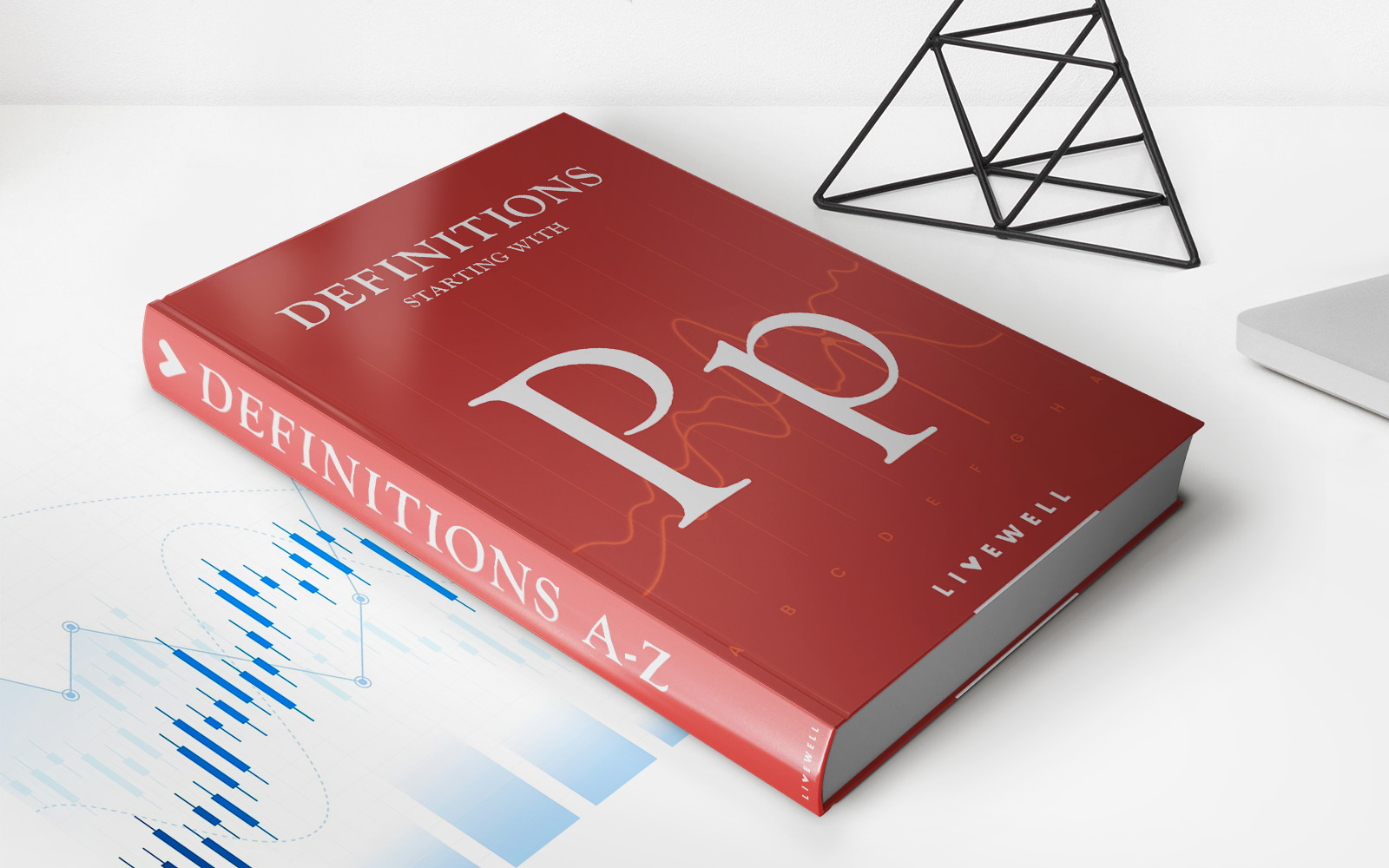

Finance
What To Do With A Life Insurance Payout
Modified: February 21, 2024
Discover smart financial strategies for managing a life insurance payout. Maximize your finances and make informed decisions to secure your future.
(Many of the links in this article redirect to a specific reviewed product. Your purchase of these products through affiliate links helps to generate commission for LiveWell, at no extra cost. Learn more)
Table of Contents
Introduction
Receiving a life insurance payout is a significant financial event that can have a long-lasting impact on your life. Whether you have recently received a life insurance benefit or are considering getting life insurance, it is essential to understand what to do with the funds to make the most of them.
Life insurance provides financial protection for your loved ones in case of your untimely demise. The payout can range from a few thousand dollars to millions, depending on the coverage and policy you have. The purpose of the insurance payout is to ensure that your family and dependents can continue to meet their financial needs and maintain their quality of life even in your absence.
While it can be overwhelming to receive a significant amount of money all at once, taking a strategic approach to managing the life insurance payout can set you on the path to financial security and achieve your long-term goals. Here, we will discuss some of the best ways to utilize a life insurance payout.
Before making any decisions, it is crucial to assess your financial situation. This includes taking into account your outstanding debts, existing savings and investments, future financial goals, and the needs of your dependents. By doing so, you can make informed choices that align with your specific circumstances.
Assessing Your Financial Needs
Before deciding how to allocate your life insurance payout, it is important to assess your financial needs. Take the time to evaluate your current financial situation and identify any areas that require attention. Here are some key considerations:
- Outstanding Debts: Determine if you have any outstanding debts, such as a mortgage, car loan, or credit card balances. Prioritize paying off high-interest debts to alleviate financial stress and improve your overall financial health.
- Emergency Fund: Evaluate the state of your emergency fund. An emergency fund acts as a safety net in case of unexpected expenses or loss of income. Ideally, you should aim to have three to six months’ worth of living expenses saved up.
- Investments and Retirement: Review your current investments and retirement savings. Determine if you are on track to meet your long-term financial goals. Consider consulting with a financial advisor to ensure your investment portfolio is diversified and aligned with your risk tolerance and goals.
- Dependents and Future Expenses: Consider the needs of your dependents, such as children or elderly parents. If you have children, you may need to allocate funds for their education or future expenses. Discussing your financial plans with your family can help ensure everyone’s needs and goals are taken into account.
By carefully assessing your financial needs, you can gain a clear understanding of your priorities and make informed decisions about how to best utilize your life insurance payout.
Pay off Debt
One of the most impactful ways to utilize a life insurance payout is to pay off outstanding debts. Debt can be a significant financial burden, and using the funds to eliminate or reduce your debt can provide you with peace of mind and put you on a stronger financial footing. Here are a few key considerations:
- High-Interest Debt: Start by focusing on high-interest debts, such as credit card balances or personal loans. These debts tend to carry higher interest rates, and paying them off quickly can save you a considerable amount of money in interest payments.
- Mortgage or Loan Repayments: Consider using a portion of the life insurance payout to pay down your mortgage or other significant loans. Reducing the principal balance can lower your monthly payments or potentially allow you to pay off the debt entirely.
- Student Loans: If you have student loans, it may be wise to use a portion of the funds to pay down or completely eliminate this debt. This can relieve the burden of monthly loan payments and free up cash flow for other financial goals.
- Debt Consolidation: If you have multiple debts with varying interest rates, you may want to consider debt consolidation. This involves combining your debts into a single loan with a lower interest rate. Using a portion of your life insurance payout to pay off multiple debts and consolidate them can simplify your finances and potentially save you money on interest payments.
By prioritizing debt repayment, you can reduce financial stress and free up funds for other financial goals and emergencies. Consider working with a financial advisor or debt counselor to develop a comprehensive debt repayment strategy tailored to your specific circumstances.
Emergency Fund
Building and maintaining an emergency fund is a crucial component of financial stability. An emergency fund acts as a safety net in case of unexpected expenses or a sudden loss of income. Using a portion of your life insurance payout to bolster or establish an emergency fund can provide you with a sense of security and financial stability. Here’s what you need to know:
- Size of the Emergency Fund: Financial experts generally recommend having three to six months’ worth of living expenses saved in an emergency fund. Assess your monthly expenses and calculate the appropriate amount for your circumstances.
- Use to Cover Unexpected Costs: An emergency fund is designed to help you cover unexpected expenses, such as medical bills, car repairs, or home maintenance. Having readily available funds can provide peace of mind during challenging times.
- Protect Against Loss of Income: In addition to unexpected expenses, an emergency fund can act as a buffer in case of a job loss or reduced income. It can help cover essential expenses and give you time to find a new job or adjust your financial situation.
- Where to Keep Your Emergency Fund: Keep your emergency fund in a separate savings account that is easily accessible but separate from your everyday spending accounts. This will help prevent the temptation to dip into it for non-emergency purposes.
By utilizing a portion of your life insurance payout to establish or enhance your emergency fund, you are preparing for the unexpected and creating a stronger financial foundation. This financial cushion can provide you with peace of mind and the ability to navigate unforeseen circumstances without incurring debt or financial distress.
Invest for the Future
Investing a portion of your life insurance payout can help you grow your wealth and secure your financial future. By making informed investment decisions, you can potentially generate income, build wealth, and achieve your long-term financial goals. Here are some considerations when investing for the future:
- Define Your Goals: Determine your financial objectives and time horizon. Are you saving for retirement, education expenses, or a specific milestone? Understanding your goals will guide your investment strategy.
- Diversify Your Portfolio: Diversification is key to reducing risk. Spread your investments across various asset classes, such as stocks, bonds, real estate, and mutual funds, to mitigate the impact of any one investment’s performance.
- Consider Your Risk Tolerance: Understand your risk tolerance and invest accordingly. If you have a lower risk tolerance, opt for more conservative investments. If you are comfortable with risk, you may pursue higher-risk investments that offer the potential for greater returns.
- Seek Professional Advice: Consider consulting with a financial advisor who can help you develop an investment plan aligned with your goals and risk tolerance. They can provide valuable insights and guidance to maximize your investment potential.
- Regularly Monitor and Rebalance: Investments should be regularly monitored and rebalanced. Stay informed about market trends and adjust your portfolio as needed to ensure it remains aligned with your goals and risk tolerance.
Investing for the future allows your life insurance payout to work for you over time. By growing your wealth through strategic investments, you can create a secure financial future for yourself and your loved ones.
Save for Education
If you have children or plan to pursue higher education yourself, using a portion of your life insurance payout to save for education expenses can be a wise decision. Education costs continue to rise, and having funds set aside can help alleviate the financial burden of tuition, books, and other educational expenses. Here are some key points to consider when saving for education:
- Start Early: The earlier you start saving for education, the more time your investments have to grow. Consider setting up a dedicated education savings account, such as a 529 plan or educational savings account (ESA), which offers potential tax advantages.
- Research Different Saving Options: Explore various savings options and compare their features, benefits, and potential returns. 529 plans, for example, allow for tax-deferred growth and tax-free withdrawals when used for qualified educational expenses.
- Estimate Future Costs: Project future education costs based on the type of education your child or you plan to pursue. Consider factors such as tuition, fees, housing, and inflation to ensure you are saving enough to meet the expected expenses.
- Contribute Regularly: Make regular contributions to your education savings fund to build it over time. Automating contributions can help ensure consistent savings and take advantage of dollar-cost averaging.
- Explore Financial Aid Options: While saving for education is important, it’s also essential to understand financial aid options available. Investigate scholarships, grants, and student loan programs, as they can help supplement your savings and reduce the overall cost of education.
By using a portion of your life insurance payout to save for education, you are investing in the future and providing yourself or your loved ones with the opportunity to pursue higher education without the burden of excessive student loan debt.
Take Care of Loved Ones
One of the primary purposes of life insurance is to provide financial support to your loved ones after your passing. Using a portion of your life insurance payout to take care of your family can help ensure their well-being and future financial stability. Here are some key considerations:
- Support Dependents: If you have dependents, such as children or elderly parents, use a portion of the life insurance payout to cover their day-to-day living expenses and support their financial needs. This can include costs for housing, education, healthcare, and other essential needs.
- Pay Off Mortgage: Consider paying off the mortgage on your family home. This can provide your loved ones with a secure and comfortable place to live without the burden of monthly mortgage payments.
- Create a Trust: Establishing a trust can help protect and manage the life insurance proceeds on behalf of your beneficiaries, especially if they are minors or may not have the financial expertise to handle a large sum of money.
- Legacy Planning: Use a portion of the funds to leave a lasting legacy for your loved ones. This can include setting up educational scholarships, donating to charitable causes close to your heart, or endowing a foundation in your name.
- Income Replacement: Consider investing a portion of the life insurance payout to generate regular income for your family, ensuring they have a steady stream of money to cover expenses and maintain their standard of living.
By utilizing your life insurance payout to take care of your loved ones, you can provide them with financial security and peace of mind during a challenging time. It is essential to work closely with your beneficiaries and financial advisors to develop a plan that best meets the specific needs and goals of your family.
Support a Cause or Charity
Using a portion of your life insurance payout to support a cause or charity that is meaningful to you is a powerful way to make a positive impact in the world. Giving back not only benefits the organization or cause you support but also brings a sense of fulfillment and purpose to your life. Here’s how you can support a cause or charity:
- Research and Identify Causes: Find causes or charities that align with your values and interests. Consider issues such as education, healthcare, environmental conservation, poverty alleviation, or animal welfare. Research reputable organizations that address these causes and have a track record of making a difference.
- Donate Financially: Contribute a portion of your life insurance payout as a monetary donation to the cause or charity of your choice. This direct financial support can help fund their programs, projects, and initiatives.
- Volunteer Your Time: In addition to financial support, offer your time and skills by volunteering for the cause or charity. Helping out in various capacities can have a significant impact and allow you to actively make a difference in the lives of others.
- Create a Charitable Foundation: Consider establishing a charitable foundation using the life insurance payout. This allows you to have a more structured approach to philanthropy, with the ability to support multiple causes or initiatives over an extended period.
- Leave a Legacy: If you have a particular cause that is close to your heart, you can designate a portion of your life insurance payout as a legacy gift. This ensures that your support for the cause continues even after your passing.
Supporting a cause or charity with your life insurance payout enables you to create a lasting impact beyond your lifetime. By making a difference and giving back, you contribute to the betterment of society and leave a meaningful legacy.
Purchase Property or Real Estate
Investing a portion of your life insurance payout in property or real estate can be a smart financial move. Real estate has the potential to provide long-term appreciation and generate rental income. Here are some key considerations when purchasing property or real estate:
- Home Ownership: Consider investing in a primary residence if you do not already own a home. Having a place of your own provides stability, reduces the need for monthly rent payments, and builds equity over time.
- Rental Property: Purchasing a rental property can be a source of passive income. It offers the potential for rental income that can supplement your cash flow and provide a long-term investment opportunity.
- Diversification: Real estate can diversify your investment portfolio, reducing risk by spreading your wealth across different asset classes. This can help protect your overall financial well-being.
- Growth Potential: Real estate has historically shown strong growth potential over the long term. It can provide both capital appreciation and a steady income stream through rental payments.
- Location and Market Research: Thoroughly research the location and real estate market before making a purchase. Consider factors such as job growth, amenities, infrastructure development, and potential rental demand. It is essential to make an informed investment decision.
- Property Management: If you choose to invest in rental properties, consider hiring a property management company to handle day-to-day operations, such as finding tenants, collecting rent, and property maintenance. This can alleviate the responsibilities and time commitment that come with being a landlord.
Purchasing property or real estate with your life insurance payout can provide you with a tangible asset and the potential for financial growth. However, it is crucial to conduct thorough research, seek professional advice, and ensure that real estate aligns with your overall financial goals and risk tolerance.
Start a Business
Using a portion of your life insurance payout to start a business can be an exciting and fulfilling endeavor. It offers the opportunity to create your own path, pursue your passions, and potentially generate income. However, starting a business requires careful planning and consideration. Here are some key points to keep in mind:
- Business Idea and Market Research: Identify a viable business idea that aligns with your skills, interests, and market demand. Conduct thorough market research to understand your target audience, competition, and potential growth opportunities.
- Business Plan: Develop a comprehensive business plan that outlines your goals, strategies, financial projections, marketing plans, and operations. A well-crafted business plan will guide you through the initial stages and attract potential investors or lenders.
- Financial Considerations: Determine how much of your life insurance payout you are willing to invest in the business. Consider the costs of starting and sustaining the business, including equipment, supplies, marketing, and working capital. It may be wise to consult with a financial advisor or accountant to understand the financial implications.
- Legal and Regulatory Requirements: Research and comply with all legal and regulatory requirements to start a business. This includes obtaining necessary licenses and permits, registering your business entity, and understanding tax obligations.
- Seek Professional Advice: Consider consulting with business experts, such as attorneys, accountants, and business coaches, who can provide guidance and advice to set you up for success.
- Risk Management: Starting a business comes with risks. Assess potential risks and develop strategies to mitigate them. This can include acquiring business insurance, building a strong network, and having a contingency plan.
Starting a business with your life insurance payout can be a rewarding journey, allowing you to pursue your entrepreneurial dreams and potentially achieve financial independence. It is essential to research, plan meticulously, and seek professional advice to increase your chances of success.
Enjoy Retirement
Using a portion of your life insurance payout to enjoy retirement is a well-deserved reward for a lifetime of hard work. Retirement offers the opportunity to pursue hobbies, travel, spend time with loved ones, and enjoy a fulfilling and relaxing lifestyle. Here are some key considerations to make the most of your retirement:
- Create a Retirement Budget: Develop a comprehensive retirement budget that takes into account your expected expenses, including housing, healthcare, leisure activities, travel, and daily living. This will help ensure that your life insurance payout is allocated appropriately to sustain your desired retirement lifestyle.
- Invest for Income: Consider investing a portion of the life insurance payout to generate a reliable income stream during retirement. This can include investments in stocks, bonds, annuities, or other financial instruments that provide regular payouts to cover your expenses.
- Plan for Health Insurance: Determine how you will obtain and cover the costs of health insurance during retirement, as Medicare may not cover all healthcare expenses. Research and compare different options available to you, such as private insurance plans or employer-provided retiree health benefits.
- Travel and Leisure: Use your life insurance payout to fulfill your travel dreams and engage in leisure activities during retirement. Explore new destinations, cultures, hobbies, and experiences that you may have put on hold while working.
- Invest in Self-Care: Prioritize self-care during retirement. This can include engaging in regular exercise, pursuing hobbies, maintaining social connections, and taking steps to improve your overall health and well-being.
- Estate Planning: Update your estate plan to ensure that your assets, including the remaining life insurance funds, are distributed according to your wishes. Consult with an estate planning attorney to create a will, establish trusts, and address any tax implications.
Retirement is a phase of life that should be enjoyed to the fullest. Using your life insurance payout wisely can help you create the retirement lifestyle you desire and provide financial security throughout your golden years.
Conclusion
Receiving a life insurance payout presents a valuable opportunity to make informed financial decisions that can shape your future. By assessing your financial needs and prioritizing your goals, you can maximize the impact of the life insurance funds and set yourself up for long-term financial security. Whether you choose to pay off debts, establish an emergency fund, invest for the future, support a cause, purchase property, start a business, take care of loved ones, save for education, or enjoy retirement, it is crucial to make deliberate and well-thought-out choices.
Consider seeking the assistance of financial advisors, accountants, and legal professionals to ensure your decisions align with your individual circumstances. Additionally, remember to stay flexible in adapting your financial strategies as your needs and goals may change over time.
By leveraging your life insurance payout wisely, you can seize this opportunity to improve your financial well-being, provide for your loved ones, support causes close to your heart, and achieve your lifelong aspirations. Remember that each individual’s financial situation is unique, and it is important to make choices that align with your personal goals, values, and comfort level. As you navigate this significant financial event, take the time to reflect on your priorities and make decisions that will bring you long-term fulfillment and peace of mind.














